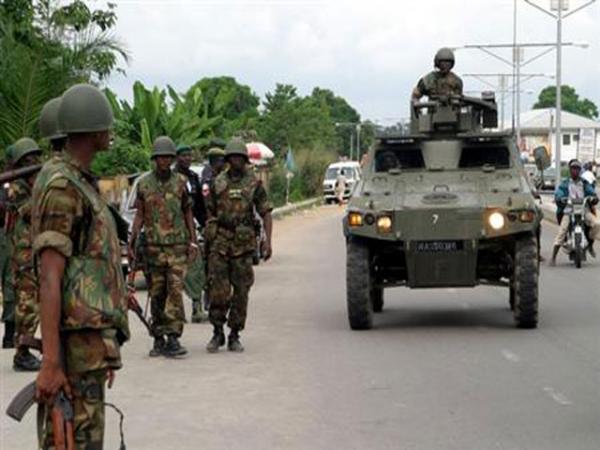None of them had neither attained retirement age nor the mandatory years of service.
Olayomi Koiki

No fewer than 196 Nigerian soldiers in the North-East and other theatres of operation have applied to the Chief of Army Staff, Lt Gen Taoreed Lagbaja, for voluntary retirement, per a report by an investigative news outlet.
The action comes amid worsening security challenges the military is currently combating in most parts of the country.
Most of the soldiers resigning had indicated interest to join the military forces of other countries, including the British Army, Ukrainian Army, and other Commonwealth nations, Sahara Reporters reported, citing sources.
The soldiers, drawn from various formations of the army across the country according to the list obtained on Saturday, are all junior cadres. The Chief of Army Staff has since approved their formal disengagement.
The list of the exiting soldiers did not distinguish between those embarking on voluntary retirement and those leaving the army on medical grounds.
However, none of them had neither attained retirement age nor the mandatory years of service.
The approval of their voluntary disengagement dated August 23 was signed by Brigadier OH Musa.
There have been allegations of corruption in the Nigerian Army which some of the soldiers have blamed on the issue – soldiers overstaying in the North-East.
According to some soldiers, the army is the epitome of deep-seated corruption. They noted that the corruption is affecting the prosecution of the anti-terrorism war in the North-East.
They complained that they were being forced to confront Boko Haram militants, adding that their low morale and lack of willingness to continue to fight made it possible for terrorists to dislodge some military camps recently.
They complained of abandonment and accused the military authorities of keeping them on the war front beyond their approved period of stay.
The news outlet cited a recent report about the moves by many soldiers to resign over poor welfare, inadequate equipment, and lack of motivation within the Nigerian Army.
Multiple sources in the Nigerian military who spoke to the New York-based news outlet had expressed frustration with the Nigerian government’s failure to provide them with decent living conditions, modern weapons, and adequate compensation to combat a series of non-state actors ravaging the country.
“A set of 27 personnel are leaving and this set is only medical corps. Infantry corps and armoured corps are still coming. So many more will leave.
“Soldiers are leaving because the work is no longer sustainable. People are running every day to join British Army, Ukraine, Russia, Commonwealth army and the likes. That’s what is happening now,” one of the sources had said.
“Even the planned protest, many soldiers are praying it should happen,” another source added.
Insecurity and violence in Nigeria
For more than a decade, civilians in Nigeria have faced multiple security threats and risk of atrocities as result of attacks, kidnappings and extortion by various non-state armed groups.
Since the start of 2024 civilians have faced intensified violence across Nigeria, and near-daily attacks by armed groups resulting in kidnappings and other abuses against civilians.
Armed groups and gangs, including so-called “bandits,” have – for many years – perpetrated widespread atrocities, including murder, rape, kidnapping, organized cattle-rustling and plunder. Armed herdsmen are also destroying vast swaths of farmland, prompting many farmers to abandon their land out of fear of attack.
In August, a Nigerian soldier, Suleiman S., alleged that the government’s practice of paying ransoms terrorists – dubbed as bandits in the country was hindering the military’s ability to effectively combat them.
He urged the public to redirect their blame from the Nigerian Army to the government, emphasising that soldiers are constrained by orders and cannot take independent action.
The soldier said the military has the capability to eradicate bandits, particularly in hotspots like Zamfara State forest within a week if given the necessary orders.
He expressed frustration that the military’s potential is being wasted due to a lack of direction from leadership, whom he accused of profiting from the ongoing crisis.
He cited the assassination of a Sokoto State monarch, Alhaji Isa Muhammad Bawa as an example of a coordinated plan by certain individuals or groups to perpetuate insecurity.
